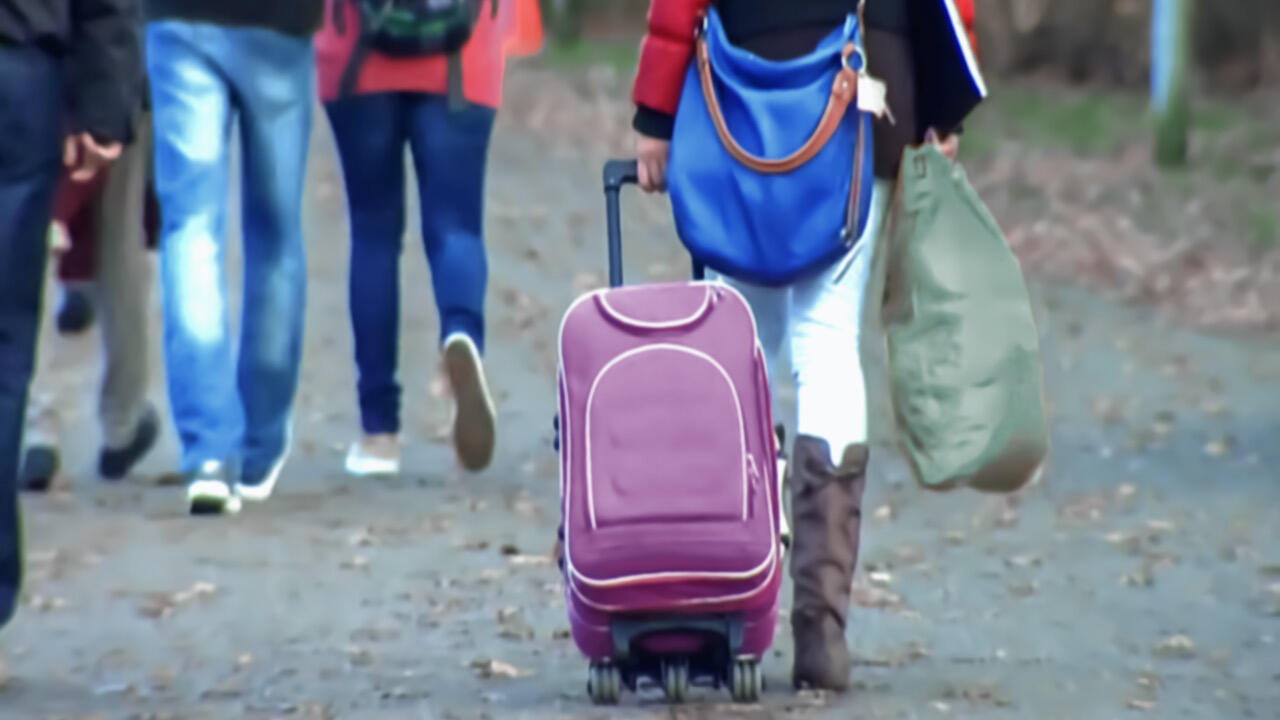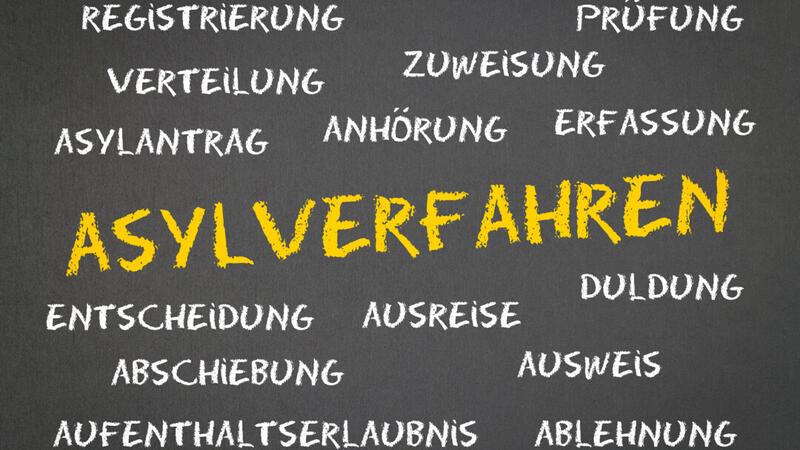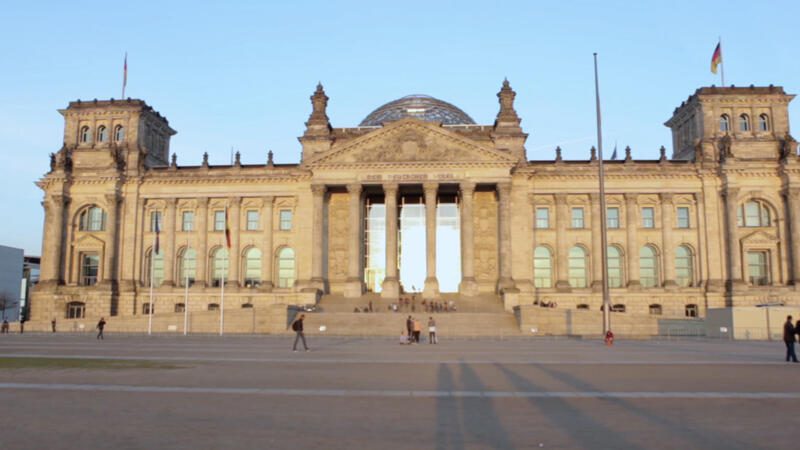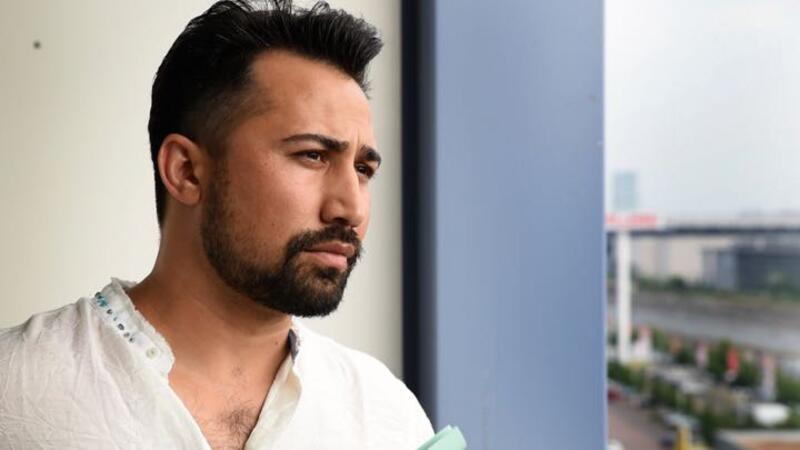Revocation Procedure

Can I lose my residence permit?
Under the revocation procedure, the protection status of individuals recognised as entitled to asylum, refugee status, subsidiary protection or a ban on deportation is re-evaluated. This means that the Federal Office for Migration and Refugees (BAMF) checks whether the person still needs protection. Revocation procedures only affect people whose asylum procedure has resulted in a positive outcome.
In reality, revocation procedures lead to an actual revocation of protection status in only a few cases. Nevertheless, it is crucial to be well prepared for the procedure and seek advice from a counselling centre or a lawyer.
What do I need to know?
The revocation procedure examines whether the protection status of a person entitled to asylum, refugee status, subsidiary protection, or ban on deportation is still necessary. The Federal Office for Migration and Refugees (BAMF) is responsible for the revocation procedure. BAMF can revoke your status if the requirements for the asylum procedure no longer exist, e.g., because your situation has changed or the situation in your country of origin has enduringly improved.
Important: The Asylum Act differentiates between "revocation" ("Widerruf") and "withdrawal" ("Rücknahme") and "expiry" ("Erlöschen") of a protection status. A withdrawal process ("Rücknahmeverfahren") is initiated if a person's protection status is to be taken back. This can happen when the BAMF finds out that someone has presented false information in their asylum procedure or withheld important facts. According to the BAMF, your protection status only expires (i.e. "Erlöschen") if you acquire German citizenship or personally decide to renounce your protection status. Please note that this chapter only focuses on the revocation procedure ("Widerrufsverfahren").
In principle, the Federal Office for Migration and Refugees (BAMF) can initiate a revocation procedure at any time. However, one should differentiate between the "standard assessment" ("gesetzlichen Regelüberprüfung") and the "event-related assessment"("Anlassbezogenen Überprüfung").
The protection status of recognised refugees and individuals entitled to asylum must be checked within 3 to 5 years after their recognition. This is known as the "standard assessment" ("gesetzlichen Regelüberprüfung"). However, it is possible that the protection status of recognised refugees, persons entitled to asylum, people with subsidiary protection and those with a ban on deportation is reviewed at any time. It can occur if there is a specific reason, for example, a trip to the country of origin. This is called an "event-related assessment" ("Anlassbezogenen Überprüfung"). You can read more about it in the next section.
Important: A revocation procedure may be initiated even if you already have a settlement permit.
There could be two distinct types of reasons:
1) The situation in your country of origin has changed enduringly. This could be, for example, a regime change or a change in legislation.
2) Your personal situation has changed OR your conduct warrants reassessment. For example, a revocation procedure is usually initiated when:
- you travel to your country of origin.
- your situation changes, e.g., you reach legal age or recover from your illness or convert to a different religion. In these cases, however, your age, illness or religion must have been decisive for the favourable decision of your asylum application.
- you apply for family asylum for your descending family.
- you apply for a permanent residence permit or German citizenship.
- you are sentenced to at least one year in prison - as an adult or a juvenile offender.
- your asylum procedure was done in writing- and you did not have a personal hearing session with the BAMF.
For recognised refugees and persons entitled to asylum, two other reasons can usually lead to a revocation procedure- that is the case:
- If you apply for a new passport from your home country or renew your old passport.
- If you contact authorities in your home country.
As a recognised refugee or person entitled to asylum, contacting the embassy of your home country or travelling to your home country would always warrant a reassessment of your protection status. That is because visiting the embassy or travelling there indicates that you may not be at risk in your own country. The same applies to people with subsidiary protection or a ban on deportation if they travel to their home country.
In a revocation procedure, the BAMF must, however, carefully investigate the circumstances of your visit or trip, i.e., What was the reason for the visit to the embassy? Have you travelled to your home country legally or illegally? What was the reason for your trip?
In principle, first, the BAMF sends you a letter and asks for your cooperation. For example, you will be asked to submit documents (e.g. your passport) or medical certificates, give fingerprints, answer questions in writing or come for an interview. You must follow these requests if the actions required by the BAMF are "necessary" ("erforderlich") and "reasonable" ("zumutbar"). If you have the impression what you have been asked for is not necessary or reasonable, you can demand the BAMF (in writing) to explain the necessity of its requests. If the actions you have been asked for are reasonable and necessary but you still do not cooperate, the BAMF can demand a kind of fine ("Zwangsgeld") from you and then decide about the revocation procedure without you. This means that your point of view of the situation will not be taken into account in the procedure. If you are in fact currently unable to cooperate, you must inform the BAMF in writing and provide evidence (e.g. medical certificate).
However, it may also be that the BAMF has already initiated the revocation procedure and your cooperation is not even necessary. In this case, you will receive a letter from the BAMF informing you of the revocation procedure and asking for your comment. You usually have a month to do so. If you do not reply, the BAMF will make a decision without you, i.e. without taking your point of view into account.
Important: If you send original documents such as your passport to the BAMF, you should copy them beforehand and, if possible, have the copy authenticated. You should always send your documents by registered mail with confirmation of receipt ("Einschreiben mit Rückschein"). It will be a little more expensive but is indeed safer- keep in mind that documents may get lost when sent per post.
If the BAMF initiates a revocation procedure against you, you should immediately seek legal advice either from a counselling centre or a law firm. In the section "Where can I seek advice and support?" you will find addresses of counselling centres and law firms/lawyers. Their staff can provide you with advice. You can also personally write to the BAMF and in your letter "demand file inspection" ("Akteneinsicht beantragen") and state that you will respond after inspection of your file. Having access to your files means that you can see your own files at the BAMF and read what the BAMF has recorded about you. You should also gather evidence of existing or old grounds for asylum now. For example, evidence that your family is being persecuted in your home country or certificates that show you are still ill or have another illness that can only be treated in Germany.
Make sure you read the minutes of your hearing in the asylum procedure or your answers in the written asylum procedure before your interview. You should also read the BAMF's decision on your protection status or the court decision if you have appealed against the BAMF's decision in the asylum procedure.
There is no standardized questionnaire for the withdrawal procedure. Often, however, the same questions are asked that were asked in the hearing during the asylum procedure. You can find more about this in our chapter "Asylum Procedure".
During a revocation procedure, some Immigration Offices only extend the residence permit with a temporary residence permit or "Fiktionsbescheinigung". From a legal point of view, however, nothing precludes the extension of a residence permit during an ongoing revocation procedure. If your Immigration Office refuses to renew your residence permit, you should seek support from a lawyer.
Whether you can apply for a permanent residence permit during the revocation procedure depends on your status:
Recognised refugees and individuals entitled to asylum cannot obtain a "permanent residence permit for refugees" during a revocation procedure. However, this only applies if the BAMF has already informed the Immigration Office that you meet the requirements for revocation of your protection.
But as a person with subsidiary protection or a ban on deportation, you can apply for a permanent residence permit during the revocation procedure, as people with subsidiary protection or a ban on deportation can only apply for a "normal" permanent residence permit anyway. Recognised refugees and persons entitled to asylum can also apply for a "normal" permanent residence permit. Then, however, no more eased conditions will apply to them.
The privileged naturalisation for recognised refugees and individuals entitled to asylum is not possible during an ongoing revocation procedure. "Normal" naturalisation - i.e. without a shorter waiting period - is possible for everyone even during a revocation procedure. You can find out more about citizenship in our chapter "Naturalisation".
You will receive a written notification if your protection status is, in fact, revoked. You can file a lawsuit against this decision at the administrative court in your place of residence- and you need to do so in 2 weeks. In principle, your protection status remains in effect while the lawsuit is being processed. Make sure you seek advice and support from a lawyer. You can find lawyers and counselling centres nearby on our Local Information page. Enter the name of the city where you live and search for asylum, right of residence or legal advice service in your area. You can find more information in our chapter "Legal aid".
If you do not file a lawsuit within two weeks, your protection status will be irrevocably lost.
If your protection status is revoked, the Immigration Office will be notified. Then, the Immigration Office decides what happens to your residence permit. In principle, you will lose your residence permit and your Blue Passport/ Gray Passport. However, the immigration authorities will check whether you are entitled to a residence permit for other reasons, e.g. a residence permit for humanitarian reasons, a residence permit for well-integrated adults/adolescents or an "Ausbildungsduldung". You should also try and examine your options yourself- and a counselling centre can help you with this. You will also find information about various alternative forms of residence in our chapters Right of Residence for People with "Duldung" and Asylum application rejected.
Important: If your protection status is revoked and your family has received a residence permit via the so-called family asylum, their protection status will also be revoked. However, it will be checked whether your family can be granted protection status for other reasons.
It is imperative that you seek advice immediately if a withdrawal procedure is initiated against you. You can find lawyers and counselling centres nearby on our Local Information page. Enter the name of the city where you live and search for asylum, right of residence or legal advice service in your area.
Important
The BAMF will also ask the Immigration Office, Job centre or social Welfare Office responsible for you for information regarding possible reasons for revoking your protection status. If, for example, the Job Centre knows about a trip to your country of origin, this information will be communicated to the BAMF.







